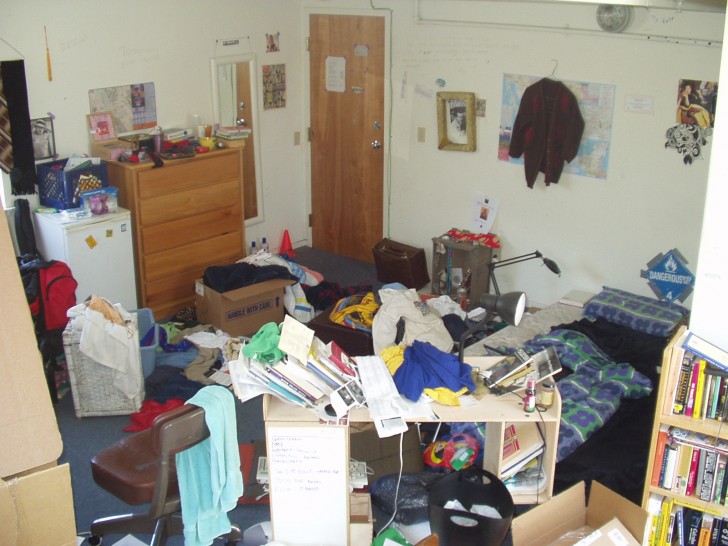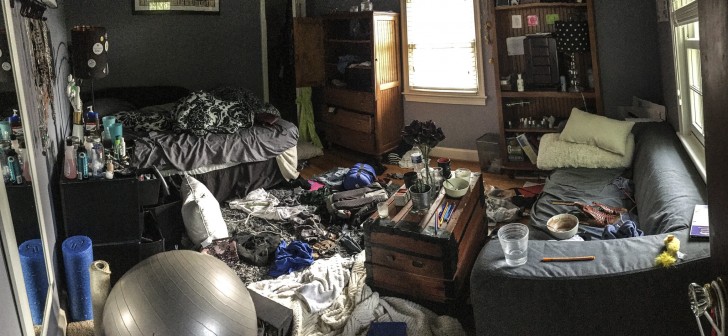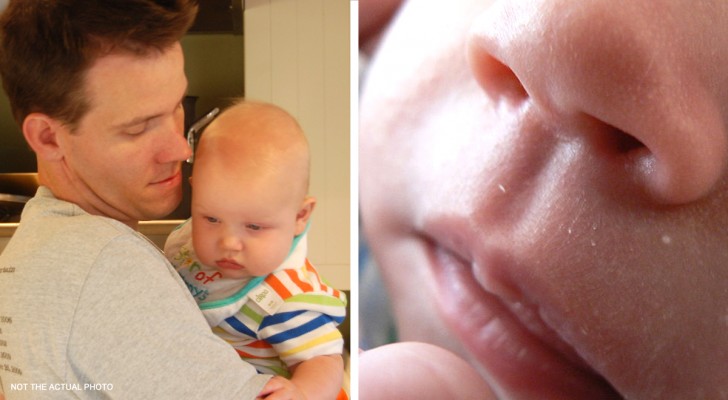Desperate mother unleases on her teenage son: "The chaos he causes drives me crazy, I want him gone"

One of the most frequent family arguments between parents and teenagers is that about the neatness and cleanliness of the home. On the one hand, teenagers seem to get a perverse joy from breaking all the rules that need to be followed to ensure the home functions properly. These rules range from putting the cap back on the toothpaste, to keeping their clothes and their environment clean; from the closing of open drawers to respecting their study time. On the other hand, parents often do not understand how their "sweet little angel" has turned into a destroyer of the family's harmony.
Managing these conflicts is a job for mature people, but some parents struggle to handle the poor behavior of their children. So how exactly does one do it?

Unsplash / Not the actual photo
A desperate mother wrote on the internet:
"My eldest son is 20, but he acts like he's 14. His 12-year-old brother behaves better than he does. He's always been lazy, never worried about school (he went to school, but he did just the bare minimum), he doesn't care what he looks like, he spends all of his money on computer games, chips, sweets, sodas and cookies, and generally behaves extremely immaturely. I'm desperate."
In the days of our grandparents, 20-year-olds already had big responsibilities and usually had a family to support. Today, however, children live a prolonged adolescence but they still want to be treated as adults. The chaos caused by a growing child is one of the main causes of quarrels and arguments in the family. Parents try desperately to impose rules to keep things in order; adolescents always seem sulky, dissatisfied and angry.

The mother's frustration was not limited to just those few comments, but she continued, providing all the details of the situation:
"He is in college now, although my husband and I think he is not taking it very seriously. His room is disgusting, and I mean really disgusting. Every time he opens his bedroom door, a horrible smell comes out of it. It's terrible and even my youngest children complain about it. He leaves the clean clothes I washed and ironed in a pile on the floor, mixed up with his dirty clothes. He takes his the food upstairs and leaves the dirty plates in his room for days. He never uses the bin, so trash is littered all over the floor. He shares a bathroom with his younger brother but never takes a turn to clean it. He leaves dirty towels on the floor, and leaves his empty shampoo / soap bottles clutter the shower".

Flickr / woodleywonderworks / Not the actual photo
The desperate mother asked the internet for advice, after trying, without success, to get her son to clean up his room and take care of his personal hygiene.
Adolescents are still learning to organize their time, their space, and they want to create order in their own inner worlds. Their focus is on themselves. So it is perhaps normal - and healthy - that they fail to be considerate of doing the same for the external order in the world around them. Like it or not, the disorder adolescents cause makes sense and is the expression of their personalities and the mental changes they are going through. On the contrary, it is often parents who are too strict about the rules they dictate. Their insistance on maintaining strict order and cleanliness can be seen as a reflection of their fear of losing control over the world as it used to be. And the result of all of these tensions can be an epic war, unless more mature people in the house - who aren't necessarily the oldest - can find an effective way for all parties to communicate meaningfully together. This is a challenge which, unfortunately, has no defined set of rules, but which requires a basis of mutual trust.
From this solid starting point, it is necessary to start peace negotiations: to agree to limit chaos and mess to defined spaces (their rooms); to accept that study hours are not written in stone; to tolerate the state of their clothes and to rather let their friends point out that they are looking dirty ...
Finally, remember that the best solutions are those that come from practicing patience and gentleness, although it can sometimes be a challenge to stay calm. And what would your advice to this desperate mother be?





